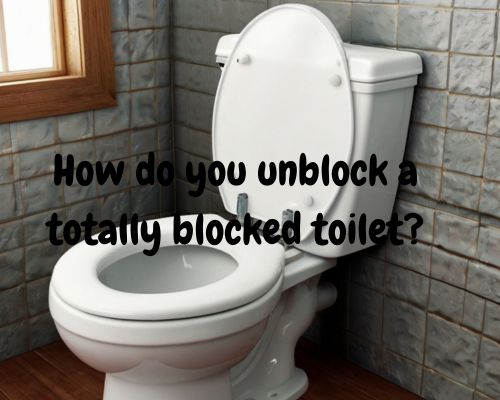“If you’re reading this article, it’s likely that you’ve found yourself in a less than ideal situation – a totally blocked toilet. Don’t worry, it happens to the best of us. While it may seem like a daunting task, unblocking a toilet is actually a fairly simple process that can be done with a few basic tools and some elbow grease.” said Dean Owens of Plumber Warragul.

First and foremost, it’s important to understand that there are several methods you can use to unblock a toilet. The best method for you will depend on the severity of the blockage and the tools you have on hand.
Some of the most common methods include using a plunger, using a toilet auger, and using hot water and dish soap. Each of these methods has its own benefits and drawbacks, so it’s important to choose the method that is best suited to your needs. In the following sections, we’ll take a closer look at each of these methods and how to use them to unblock your toilet.
Identifying and Preparing to Unblock Your Toilet
Assessing the Blockage
Before attempting to unblock your toilet, you need to assess the type of blockage you are dealing with. Is it a partial blockage or a total blockage?
If it’s a partial blockage, you may be able to clear it with a plunger. However, if it’s a total blockage, you will need to take a different approach.
Take a look at the water level in the toilet bowl. If it’s high, you may need to empty some of the water out using a bucket. This will prevent the water from overflowing when you attempt to unblock the toilet.
Next, identify the type of blockage. Is it caused by toilet paper, wet wipes, sanitary towels, tampons, or non-flushable items?
Knowing the cause of the blockage will help you choose the best method for unblocking your toilet.
Safety and Sanitation
It’s important to take safety and sanitation precautions when unblocking a toilet. Wear rubber gloves to protect your hands from bacteria and germs. Also, make sure the area around the toilet is clean and free from any items that could fall into the toilet.
When using hot water to unblock your toilet, be careful not to scald yourself. Use water that is hot but not boiling. Pour the water from waist height to create enough force to dislodge the blockage.
Finally, remember not to flush toilet paper, wet wipes, sanitary towels, tampons, or any non-flushable items down the toilet. Use a small lined bin for disposal and empty it frequently. This will prevent future blockages and keep your toilet functioning properly.
Effective Methods to Unblock a Toilet
If you’re dealing with a totally blocked toilet, don’t panic. There are several effective methods you can try to unblock it. With Dean Owens of Plumber Warragul, we’ll cover some of the most popular methods for unblocking a toilet.
Manual Removal Techniques
If you don’t have a plunger handy, there are several manual removal techniques you can try.
One of the most effective is using a wire coat hanger. Straighten the hanger and insert one end into the toilet bowl. Use a twisting motion to try and dislodge the blockage.
Another option is using a plumbing snake or auger. Insert the end of the snake into the toilet and turn the handle to break up the blockage.
Chemical and Natural Solutions
There are several chemical and natural solutions you can try to unblock a toilet. One of the most popular is the baking soda and vinegar method.
Pour a cup of baking soda into the toilet bowl, followed by a cup of vinegar. Let the mixture sit for a few minutes, then flush the toilet.
Plumbing Tools for Tough Blockages
If manual removal techniques and chemical solutions don’t work, you may need to use plumbing tools for tough blockages.
One option is a toilet auger. It’s a long, flexible rod with a corkscrew tip. Insert the auger into the toilet bowl and turn the handle to break up the blockage.
Another option is a pressure washer. It can be used to blast the blockage away.
Remember, if you’re dealing with persistent plumbing issues or are unsure about how to unblock your toilet, it’s always best to call in a professional plumber.
To prevent toilet blockages in the future, be sure to clean your toilet regularly and avoid flushing anything other than toilet paper and human waste.